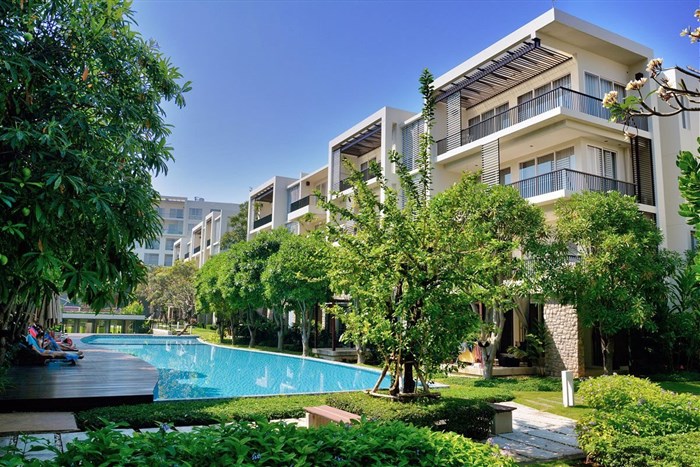The tourism, hospitality and property sectors bore the brunt of the Covid-19 pandemic's transformative economic and social impact.

Andrew Rogers, CEO, Indalo Hotels and Leisure Management
International travel bans and lockdown restrictions altered travel habits overnight, and Covid-19's persistence has altered preferences and expectations among travellers across the spectrum, from short-stay leisure tourists to extended-stay business travellers.
To ensure sustainability amid these changes, property investors and hoteliers have had to pivot their strategies, with many transitioning to the increasingly popular aparthotel model, which combines apartment living and self-catering accommodation with the convenience and luxury of the hotel experience.
In addition to the basic bed, bath and desk features commonly found in hotel rooms, fully furnished aparthotel accommodation typically offers luxury home-style amenities, including fully equipped kitchens, washing machines, and dishwashers, as well as flatscreen TVs and Wi-Fi.
Guests can also access various on-demand cleaning and concierge services to meet their specific living requirements, along with additional on-site amenities such as laundry rooms, wellness and fitness facilities, and luxury bars and restaurants.
This value proposition increasingly resonates with a broad spectrum of guests, from business travellers and migrant or project-based workers to families on extended vacations.
Moreover, upwardly mobile Millennials and Gen-Zers who are taking advantage of the thriving gig economy are less likely to buy or commit to long-term rentals because they require the flexibility to exploit job opportunities in any location.
These workers and other job seekers often require affordable transient accommodation, and the managed services of extended-stay aparthotels offer a convenient solution.
Spacious accommodation
The en mass transition to remote working models has also driven the 'semigration' trend, with people using the opportunity to keep their current job while moving their families to more desirable locations for the lifestyle or safety benefits. Aparthotels offer a convenient option for families as they make the transition.
Accordingly, the pandemic has spurred demand for comfortable, spacious accommodation for extended-stay travellers.
In addition, many aparthotels across the globe serve as quarantine or isolation facilities, and offer business and leisure travellers stuck due to travel bans a convenient, cost-effective option.
And aparthotels are proving popular among short-stay travellers as well. Where the conventional hotel model pushes guests out of their small rooms into communal public areas, the desire to avoid crowds and strangers amid the pandemic has prompted travellers to spend more time in their rooms.
As such, the combination of more space and greater privacy, coupled with access to modern amenities and conveniences and flexible rental options creates a compelling value proposition for both guests and tenants.
This is evident in rising aparthotel occupancy rates across the globe. For example, average stay length at Locke Hotels’ design-led aparthotels in the UK rose from 11 nights to 40 amid the pandemic.
Extended stays
The extended-stay hospitality sector has also performed favourably against the traditional rental market, platform services such as Airbnb and hotels. Data from The Highland Group reveals that extended-stay hotels in the US set 14 new records for metrics including demand, occupancy, average daily rate and revenue per available room in Q3 2021.
And this trend will likely persist, especially within favourably positioned aparthotels in the mid-market segment, as global travel bans ease, business travel volumes pick up and confidence levels rise among domestic and international tourists.
Meeting this growing appetite for clean, safe, convenient, and affordable flexible accommodation in a home-like environment has unlocked new opportunities for property investors and hoteliers alike.
Aparthotels offer property investors and owners flexibility to respond to shifting trends, with the option to tap into the property market to meet demand for long-term rentals, or pivot into the hospitality market during periods when short-stay and extended-stay accommodation is in higher demand.
Numerous hotel groups are already starting to add serviced rooms to their portfolios, either in the same building or as separate accommodation premises.
The leaner operating model is another attractive benefit for investors. By leveraging outsourced services from third-party providers, operators can shed the expensive back-of-house resources needed to provide on-site food preparation and cleaning services.
This model reduces overhead costs and delivers consistent returns to management companies and owners, with the potential for robust long-term cash returns from a diversified rental mix.
Lenders hurt by return on investment in the hospitality sector are also looking more favourably on real estate investments that offer flexible business models and operational competencies to underpin the inherent asset value and leasable space. And investors will likely exhibit stronger appetites for the aparthotel model, which has proven resilient through the pandemic-induced market volatility.
Furthermore, the operational competencies of experienced management teams will increasingly help to distinguish aparthotels from competitors in the hotel or rental platform space, which ideally positions these operations to deliver above-average market returns to investors.






































